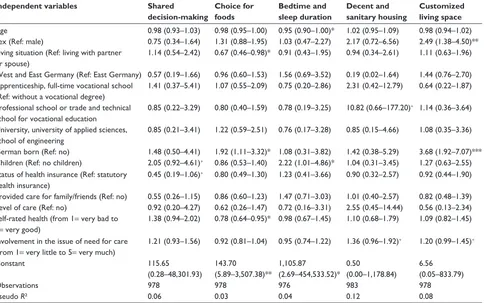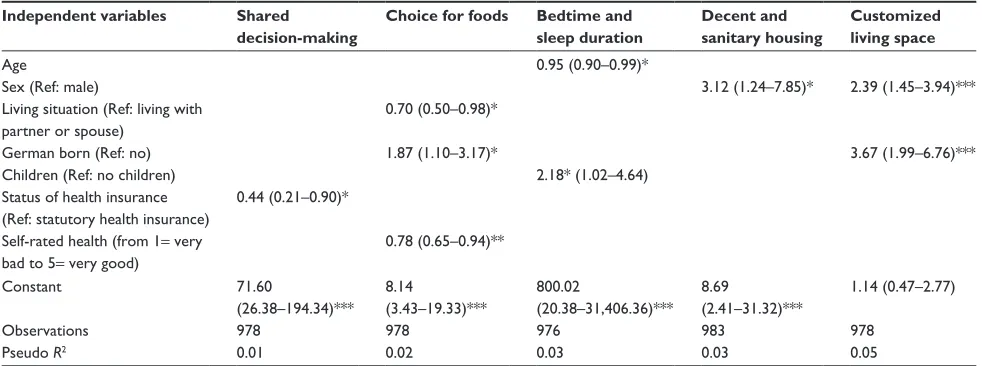Correlates of preferences for autonomy in long-term care: results of a population-based survey among older individuals in Germany
Full text
Figure




Related documents
Having a healthy diet pattern and regular physical activity is also important for long term health benefits and prevention of chronic diseases such as type2 diabetes and
Ethnic cleansing is the best to describe the Israeli citizenship Law, Pappe claims that, “ethnic cleansing has come to be defined as a crime against humanity,
A number of suggested solutions related to each of the hindering factors are presented, which if applied, may secure shifting the balance of the
A comprehensive risk disclosure index (RDI) checklist is created with key predictor variables (country, company size, managerial ownership and board independence) tested to explain
The use of ultra-high dose rates several orders of magnitude higher than conventional dose rates generates a phenomenon known as the “FLASH effect”, through which sparing of
role in the pathogenesis of lung cancer, and could be one of the determinants for its malignancy, as supported by higher DAPK methylation frequency in malignant lesions than in
Known nuclei are indicated by colored boxes, new nuclei occurring in the hypothetical 3n/4n decay chains produced in complete fusion of different target/projectile combinat-
We hypothesized that at 3 months, post-intervention families in the FACE intervention study would be signifi- cantly more likely to: 1) complete an advance